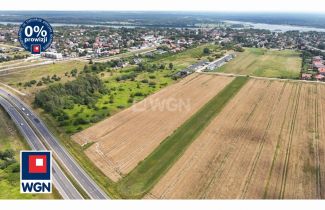KONFERENCJA
MIESZKANIA DLA SENIORÓW
ROSNĄCE WYZWANIE DLA RYNKU I SEKTORA PUBLICZNEGO
Sala Obrad Rady Miasta Krakowa
Plac Wszystkich Świętych 3-4
Kraków, 27 - 28 czerwca 2013 r.
Konsekwencje postępującego starzenia się społeczeństw Europy i Ameryki Północnej są przedmiotem gorącej debaty w większości krajów tej części świata. Najbardziej dyskutowaną jest kwestia (nie)wypłacalności systemów rentowo-emerytalnych, a co za tym idzie imperatyw sukcesywnego podnoszenia wieku emerytalnego dochodzącego w niektórych krajach do 70 roku życia. Jednocześnie, niewiele uwagi przywiązuje się do mieszkalnictwa dla seniorów stawiających specyficzne wymagania stosownie do wieku, ale nie potrzebujących jeszcze opieki instytucjonalnej czy osobistej pielęgnacji. W Polsce niewiele jest wiadomo jak i gdzie ludzie ci chcą żyć i co potrzebują, aby być mieszkaniowo niezależnymi. Podczas gdy deweloperzy i gminy budują domy opieki i mieszkania socjalne, to rosnąca grupa niezależnych seniorów nie znajduje właściwej oferty na rynku i w sektorze publicznym. Ludzie ci często zajmują kosztowne w eksploatacji i nadmiernie duże domy i mieszkania, które pasują bardziej do rodzin wychowujących dzieci, chociaż skłonni byliby się przenieść do mniejszych bardziej dopasowanych do ich potrzeb mieszkań. Nie zamierzają jednak przeprowadzać się do domów swoich dzieci, a jednocześnie nie muszą korzystać ani z mieszkań socjalnych ani z domów opieki. Ludzie ci po prostu chcą i mogą sobie pozwolić na kupno lub najem niezależnego mieszkania, ale o właściwych atrybutach i parametrach. Nie widać jednak dla nich zadowalającej oferty w sektorach rynkowym, społecznym i publicznym. W wielu krajach Zachodu problem ten znalazł specyficzne rozwiązania, którym warto by się przyglądnąć w Polsce. Przedmiotowa konferencja jest poświęcona temu, czego potrzeba do uruchomienia tego segmentu mieszkalnictwa oraz czego brakuje w Polsce dla stworzenia takiej oferty: rynkowej, społecznej i publicznej.
CONFERENCE
HOUSING FOR SENIORS
GROWING OPPORTUNITIES FOR MARKET AND PUBLIC SECTORS
Krakow City Council Chamber
Plac Wszystkich Świętych 3-4
Krakow, June 27 - 28, 2013
The ongoing aging of European and North American populations and its consequences are hotly debated issues. The most important issues focus on the potential insolvency of the pension-retirement systems, and the consequent imperative of raising the retirement age which, in some countries, is getting close to 70. At the same time, scarce attention has been paid to housing for seniors who have age-dependent requirements, but who require neither institutional help nor personal nursing care. Little is known in Poland how and where these people want to live, and
what they need in order to live independently for as long as they wish. While developers and municipalities are building nursing homes and social housing units, a growing number of independent seniors are not finding units in the market that can meet their housing needs. These people may be occupying larger units with high maintenance and utility costs. Their children have left to start their own households, and parents are left behind with large homes that may no longer be the best option for them. Many of these seniors with excessive space and potential minor mobility issues would be willing to move to smaller units better able to fit their needs – financially and physically. At some point, these seniors will need or want to move out of their current housing units. Contrary to social and cultural traditions, many seniors do not intend on living in their childrens’ homes when they are older. Among this senior demographic are people who do not have to rely on social housing units or nursing homes when they are older. They want and can afford to buy or rent a dwelling, but with appropriate attributes and parameters designed with their needs in mind. These design parameters can include but are not limited to grab bars, elevators, and slightly wider doors to allow for mobility aids. However, there is currently no satisfactory offering for them in the market. In numerous countries in the West this problem has been solved in specific ways (independent housing, age-in-place housing) which would be worth exploring in the Polish senior housing market. The conference is being convened to discuss what is needed in order to foster this housing segment, and what is still missing in Poland in order to create this new senior housing product, both in the market, social and public housing sectors.
Patronem Medialnym jest m. in.:

WIĘCEJ INFORMACJI NA: www.ein-epi.eu
 Biura WGN
Biura WGN CENTRALA WGN
CENTRALA WGN






























































